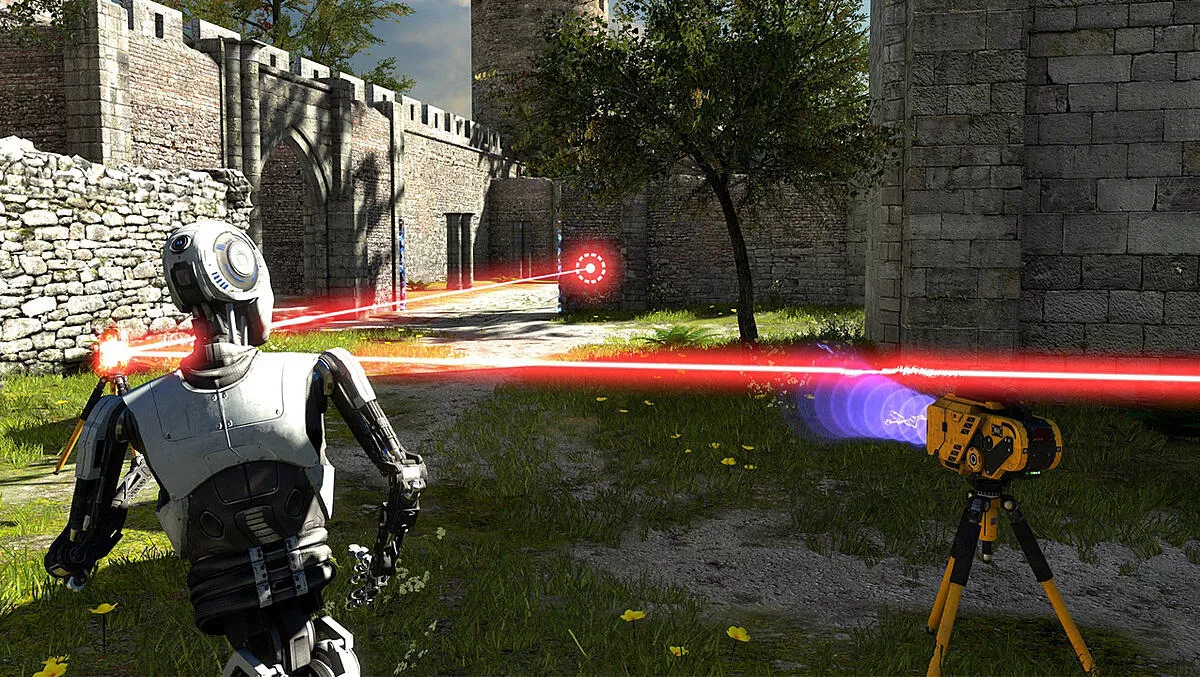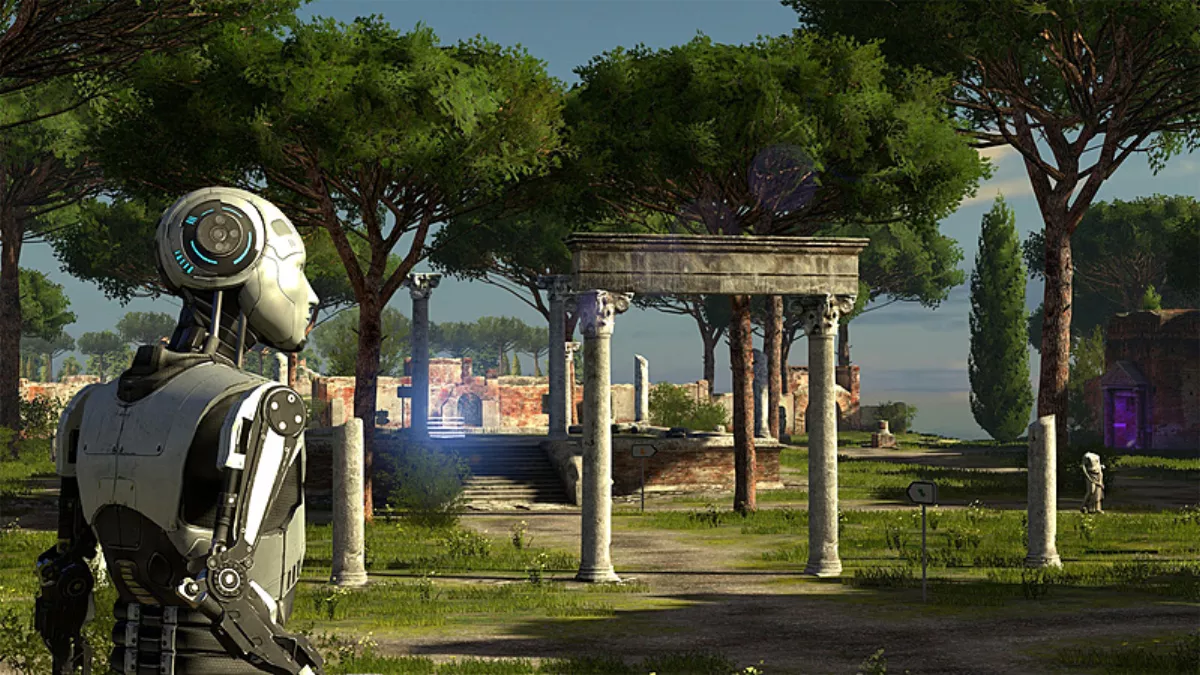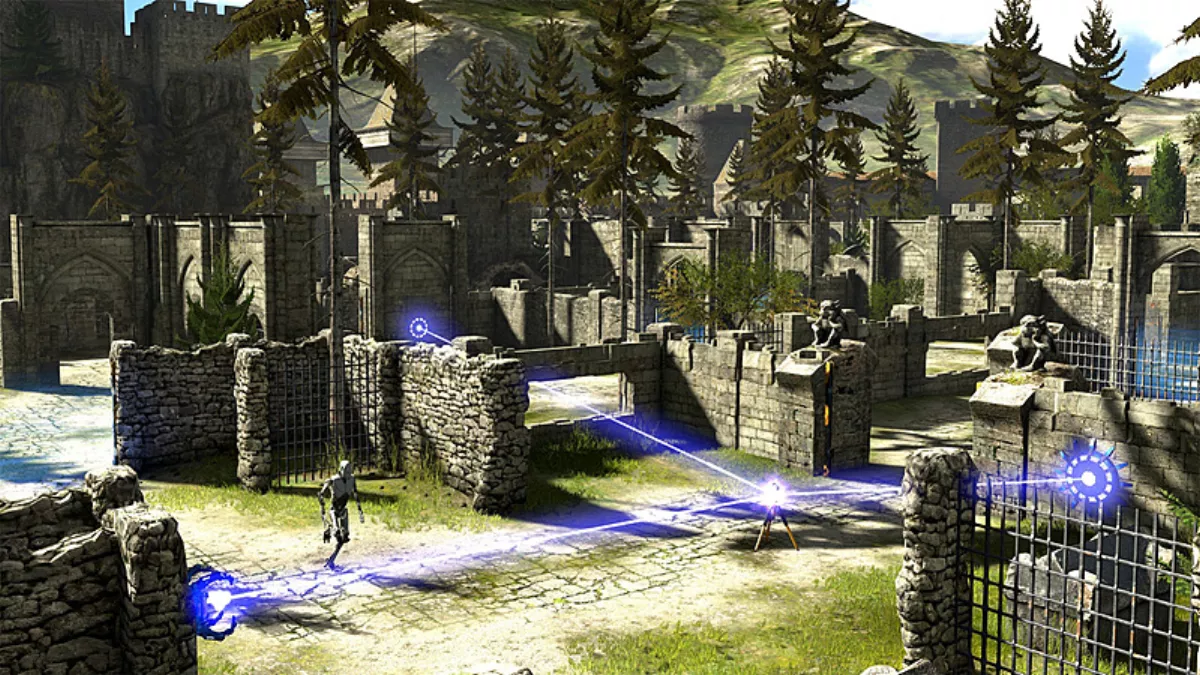
The Talos Principle is a first-person puzzle game that was first released in 2014. The game was initially released on Windows, OS X and Linux. I was excited when the game was announced for the switch as it felt like it would be a great fit for the system.
The game starts with the robot main character waking up in what looks like a deserted temple. A quick look around shows that this temple is equipped with advanced technology.
A voice is heard addressing the player, stating that it is your maker and asking you to seek out Elohim your creator in his temple and to prove your worthiness. I think that was a great start to the game. As a player, you are intrigued to move on and find out who, what, where, and why.
The story is presented in an elegant and exciting way. It takes on a lot of biblical and theological references. During the game, you will interact with these old-fashioned computer terminals, each of which bring you closer to the story. Some provide QR codes that then reveal spiritual and philosophical quotes, while others put you through strange personality tests. But it is all very unique and open to interpretation.

The objective of the game at the beginning is to collect Tetris-Esque sigils. These sigils are needed to unlock the temple. The player needs to solve puzzles in order to collect these sigils. What is exciting about The Talos Principle is the freedom that it gives players.
There is no exact order to which you need to solve these puzzles. The game opens up even more after the temple is unlocked. The temple gives you access to further tools and even different worlds. If you are stuck on a certain puzzle, you can just leave and solve other ones and then come back to it later. This system gives the players a smooth non-frustrating experience that gives them the chance to think about puzzles themselves rather than result to walkthroughs just because they must solve the puzzle to move on.
The puzzles start out easy, but rack up in difficulty the more the game progresses. Some puzzle seem obvious, while it can take a while to get used to the mechanics of some of the others. The game does a great job preparing players to the harder puzzles. It starts you off with puzzles that can be solved by hamming gates or tinkering with drones and then progresses to include aspects like time manipulation. The main game has a total of 120 puzzles.

Even though the story and the puzzles are great, I think the game's beauty comes from the art style. The world is presented in a very calming and beautiful images that keeps players interested. The game also has an outstanding soundtrack that supports the game's narrative.
I had to turn on my “Nitpicky” mode to find something bad about this game. The only problem I had with The Talos Principle on the Nintendo Switch is that loading between stages can be a bit long. The Frame rate also sees a few drops when played in Docked mode but nothing that is severe enough to affect gameplay.
Overall, The Talos Principle: Deluxe Edition is a solid first-person puzzle game that provides player with a satisfactory experience they can have at their own pace. If you haven't played this game on a different platform, I definitely recommend giving it a go on the Switch.
